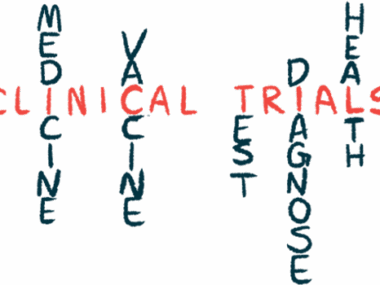Efzofitimod Earns Orphan Drug Status for Sarcoidosis in Europe
aTyr's therapy won orphan drug, fast track designations from U.S. FDA last year
Written by |

The European Commission (EC) has granted orphan drug designation to aTyr Pharma’s lead therapeutic candidate efzofitimod for treating sarcoidosis.
Orphan drug status is granted to investigational therapies that show significant potential for treating chronic or life-threatening disease that affect no more than five in 10,000 people in the European Union (EU).
Intended to support the development of much-needed therapies, the designation comes with certain benefits for aTyr, including reduced regulatory fees, the potential for 10 years of market exclusivity in the EU should the therapy be approved, and a centralized approval process.
Efzofitimod earned orphan drug and fast track designations for sarcoidosis from the U.S. Food and Drug Administration last year.
“The EC’s decision to grant orphan drug designation to efzofitimod acknowledges the unmet medical need in sarcoidosis for the approximately 150,000 people in the European Union (EU) living with this chronic, debilitating disease,” said Sanjay S. Shukla, MD, president and CEO of aTyr, in a company press release.
“The criteria for orphan status in the EU go beyond the rarity of the disease,” Skukla said, noting the designation is a recognition of “the potential benefit of this novel immunomodulator to be a transformative, disease modifying therapy with clinically meaningful outcomes for patients.”
Sarcoidosis is marked by the formation of small clumps of inflammatory cells, called granulomas, in the organs. They most often form in the lungs, where the disease is called pulmonary sarcoidosis.
In severe cases, pulmonary sarcoidosis can lead to scar tissue (fibrosis) building up, causing a permanent loss of lung function. Patients are treated with corticosteroids such as prednisone, but these have limited effectiveness and aren’t well tolerated over time.
Efzofitimod, formerly ATYR1923, is designed to dampen immune responses linked to lung inflammation by modulating the activity of the NRP2 protein, which increases in immune cells, including those that form granulomas, during inflammation.
aTyr believes the treatment will ease lung inflammation while reducing the need for corticosteroids in inflammatory lung diseases, including pulmonary sarcoidosis, systemic sclerosis-associated interstitial lung disease (ILD), and other forms of ILD.
A Phase 1/2 study (NCT03824392) of 37 people with pulmonary sarcoidosis demonstrated efzofitimod safely eased symptoms and improved lung function compared with a placebo. It also significantly reduced the need for oral corticosteroids.
The company is confirming efzofitimod’s safety and effectiveness in the ongoing Phase 3 EFZO-FIT clinical trial (NCT05415137), which is enrolling up to 264 adults, ages 18–75, at several sites in the U.S., including Puerto Rico, and in Europe.
Participants in the aTyr-sponsored trial — who are on a stable dose of corticosteroids — will be randomly assigned to receive one of two efzofitimod doses (3 or 5 mg/kg) or a placebo as monthly into-the-vein infusions for 48 weeks, about a year.
The main goal of the trial, which began dosing last September, is to significantly reduce corticosteroid usage. Secondary goals include changes in lung function and lung health.






